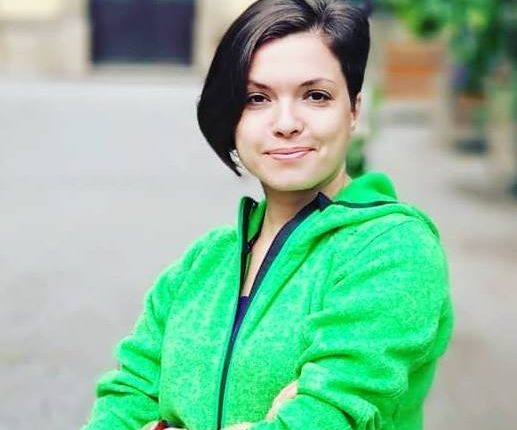CHURANOVA: “It will be easier to resist disinformation if journalists would use professional standards in their daily work”.
Interview with Olena Churanova, fact-checker at the project StopFake.org
–Modern threats in Europe emerged after the beginning of Russia’s aggression against Ukraine in 2014. What are the tendencies of the aggressors?
As we can see through many elections around Europe, it’s obviously the attempts to impact on people’s choice, to sow panic and chaos, to sow distrust in institutions, etc. Information is one of the many weapons in Russia’s hybrid war, and Russia could use it very well. Russia aggressively imposes its points of view, its narratives, its position so that the enemy perceives the pro-Russian position at the end as its own. Social media, media with owners, who are linked with Russia, influencers more often play the main role in spreading these narratives.
-Ukraine already has some experience in confronting hybrid threats. What would be the recommendations for Moldova?
First, you need an understanding of what is happening in your country, precisely with your information space. Where do people get information, which channels are trusted most of all, who owns these channels, which social networks are the popular, which groups in social networks are the most numerous, which topics are the most discussed and cause the biggest number of discussions, etc.
Secondly, on the basis of information analysis, an information strategy or a constructive strategy should be created. Against each divisive narrative, a constructive alternative should be an offer, a story that will have common values and unite. Separately we have to work with channels. Are there enough independent sources of information in the country, can the government regulate social networks and how, what is a quality of journalism in the country, and how can it be improved?
Thirdly, it is important to direct individual efforts towards raising a new generation, which will be ready to confront information challenges and the reality of disinformation.
Of course, such steps will be more effective if they are taken together with NGOs, activists, opinion leaders.
-Knowing the current political context of Moldova, how information resilience can be cultivated, in the media sector?
The media sector of civilized democratic country should remember that standards of journalism are universal anywhere. Accuracy, reliability, attribution, avoiding misrepresentation with data, open method of gathering information, avoiding stereotyping by race, gender, age, religion, etc. – those are one of the golden rules, universal rules for journalists. It will be easier to resist disinformation if journalists would use professional standards in their work every day.
At the same time, no matter what country we are talking about, if this country is in the centre of hybrid war, we have to work on promoting media literacy among the population of this country, to teach basic steps of verifying information, etc. And the third point is to provide clear and quick government communication with media, as a lot of fake news are built on uncertainty, ambiguity.
Therefore, media, NGO’s and the government should act together here to fight disinformation.


